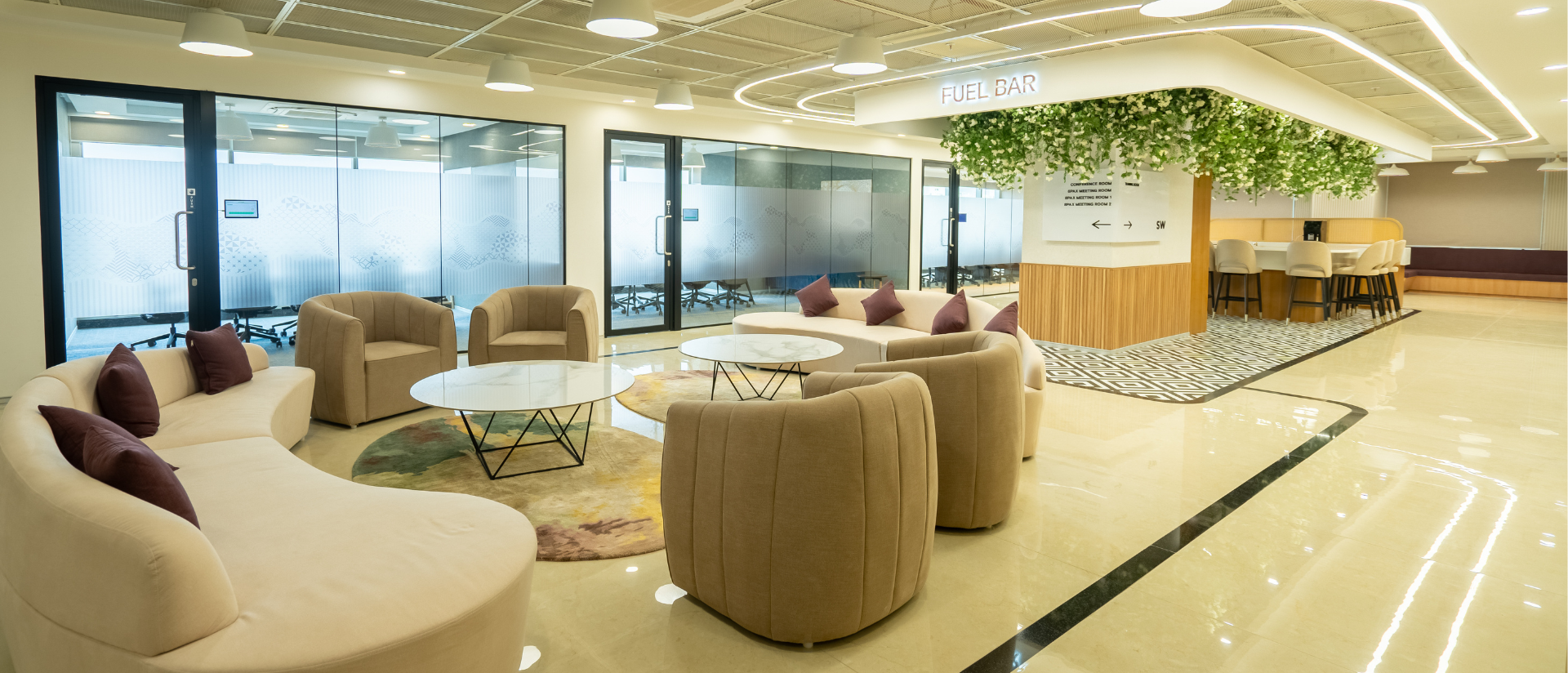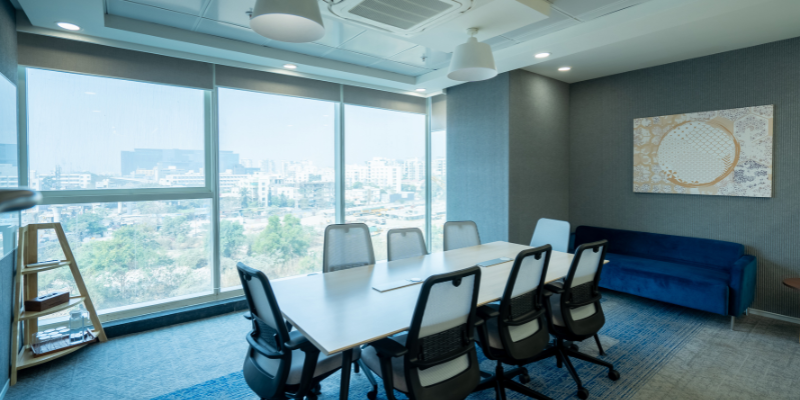Integrating Flexible Workspaces into Your Business Model

Introduction
Traditional and conventional office spaces are no more the norm and are quickly being replaced by flex office space solutions- owing to the agility and the ability to adapt to diverse business needs. From coworking to fully serviced managed spaces, flexible workspaces are the go-to for businesses looking to thrive. The blog delves into the benefits of integrating flexible workspaces into your business model and how this shift can radically impact business ops and boost employee satisfaction.
Why Flexibility is Essential in Today's Business Environment
The conventional take of long-term office leases is now outdated. The rise in remote and hybrid work models and the requirement for scalable workspaces are increasingly needed by businesses. For instance, the demand for workspace in Chennai or Pune is an example of the same trend wherein businesses are on the lookout for spaces that grow and evolve according to their needs.
Flex office space allows businesses to scale up or down quickly, supporting both remote workers and fostering team collaboration. This agility is important for meeting the demands of today's rapid business environment and ensuring employees have access to the spaces that best suit their daily life.![]()
Benefits of Integrating Flexible Workspaces
Integrating flexible workspaces into your business model comes with various advantages:
Scalability: The ability to quickly expand or reduce your workspace is essential for growth. Be it expanding into a new city or requiring additional space for a new project, flex office spaces offer a cost-effective solution minus the burden of long-term commitments.
Cost Efficiency: Traditional office leases often come with hefty upfront costs and long terms. Managed office features provide businesses with a flexible model, allowing them to pay only for the space they use. This flexibility helps optimise capital investment and avoid any financial strain.
Employee Collaboration and Engagement: Flexible workspaces are designed with collaboration as a key aspect in mind. With shared recreational areas and break-out zones, these spaces encourage teamwork - vital for business success.
Work-Life Balance: The flexibility to use private or shared spaces allows employees to work in environments that meet their work styles. This supports a healthier work-life balance, especially with hybrid working models in place, to be more productive and satisfied in their jobs.

How to Successfully Integrate Flexible Workspaces into Your Business Model
To integrate flexible workspaces successfully, consider the following steps:
Assess Your Needs: Start by evaluating your company’s current workspace requirements. Do you need to accommodate remote workers or plan for expansion into a new market? Understanding your goals will guide your decision when selecting the right flex office space.
Choose the Right Provider: Not all flexible workspaces are alike. Look for a provider that offers managed office features that align with your business needs, such as IT infrastructure, scalability, and aspirational amenities.
Leverage Technology: Modern flexible workspaces are equipped with cutting-edge technology to improve operational efficiency. Ensure your teams are familiar with tools like apps for booking space, secure access control systems, and connecting with colleagues.
Create a Hybrid Model: The flexibility of hybrid work is now crucial for businesses. Workspaces in urban areas support this model by providing both private and shared spaces, allowing employees to choose the best setting for their tasks.
Encourage Employee Engagement: Foster a culture of collaboration by encouraging your teams to actively use shared spaces and attend community events. This will help build stronger teams and enhance creativity and innovation.
Smartworks: A Case Study in Flexible Workspace Integration
Smartworks provides an excellent example of how integrating flexible workspaces into a business model can yield significant benefits. As a leading provider of managed office spaces, Smartworks offers enterprise-grade solutions that support scalability and adaptability, helping businesses grow and thrive.
Their campuses in Tier 1 and Tier 2 cities are equipped with daily-life and aspirational amenities such as cafeterias, sport zones, smart convenience stores, gyms, crèches, and medical centers, all enhanced by cutting-edge technology. Smartworks aims to provide enhanced workspace experiences through value added services, and amenities that contribute to employee well-being.
Conclusion
Flexible workspaces are an asset that can bring a lot of benefits into the business, such as scalability, cost-effectiveness, and higher engagement of employees. Businesses are now opting for flex office space solutions to stay agile, scale faster, and create a different work environment. With the changing landscape of work, these flexible workspaces will continue to drive innovation in business.
If you are considering taking up a workspace into your business model, it may be useful to look into providers such as Smartworks who can create technology-enabled, modern work environments for growth and success.
Find the perfect workspace for you
Fill out the form below and our team will contact you.
 22 Aug
22 Aug